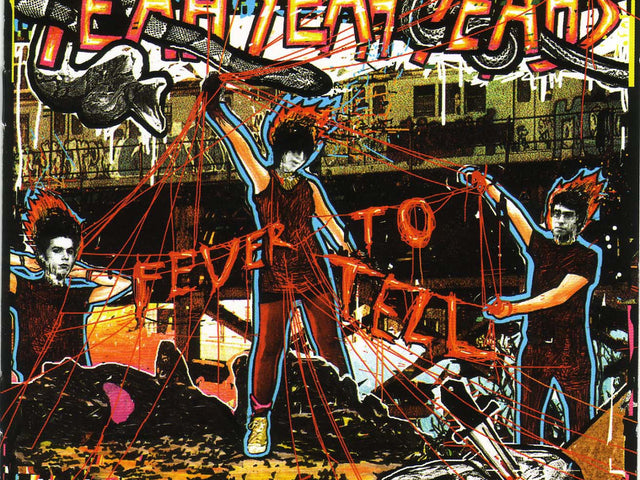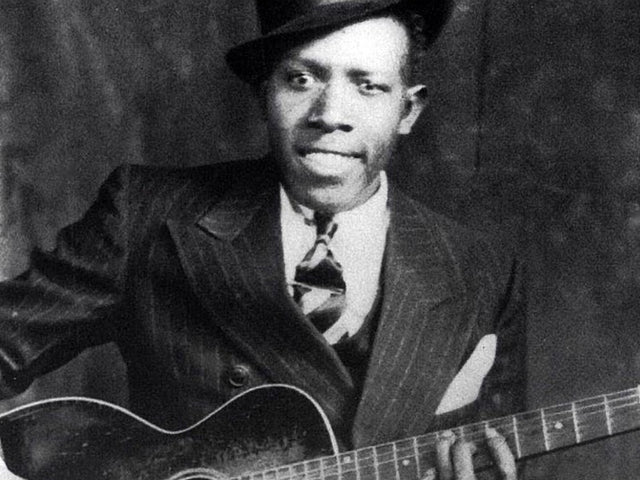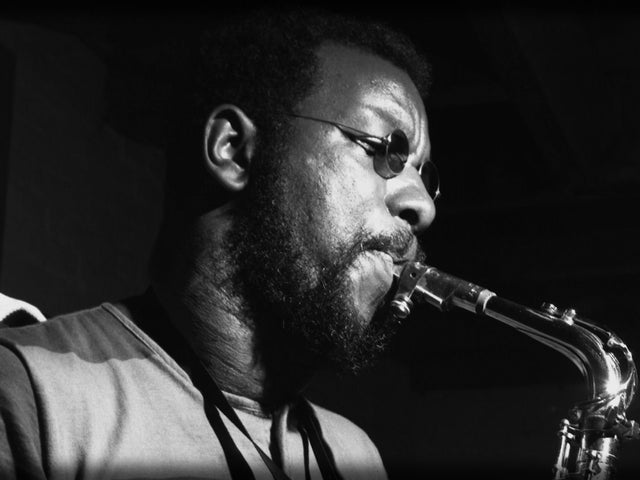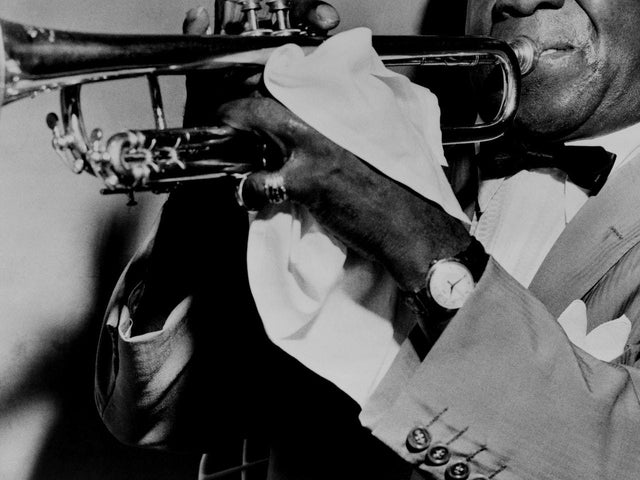Before Björk Guðmundsdóttir was an internationally renowned avant-pop star, she was just another child prodigy. In 1977, when she was just 11, she released a self-titled album consisting mostly of covers, a record often not counted as part of her discography. Björk track “Jóhannes Kjarval,” however, is a Björk original; from even her earliest years, it’s been clear that she’s a creative force, and starting in her teenage years, she helmed seemingly countless rock bands. The Sugarcubes were the first of these to break internationally, and their short lifespan led the newly famous Björk to embark on an extensive solo career that still reaps revolutionary rewards.
In her immediate post-Sugarcubes years, Björk released three albums that would permanently reshape electronic and pop music. Debut (1993), Post (1995) and Homogenic (1997) paired Björk’s voice, a truly distinct and unmistakable instrument, with beats that grew colder, more visceral and pointed with each album. The smashing critical and commercial success of Homogenic, her most influential album, guided her toward further, deeper experimentation, the trait that’s most strongly defined her 21st-century output. Her six albums released this millennium have seen her truly become an artist, a visionary whose work often extends beyond her songs (e.g. iPad apps and elementary school curricula for 2011’s Biophilia) without forgetting what lies at the core of it all: the music. Here are the 10 best Björk albums to own on vinyl in chronological order.

Debut
The writing on all three Sugarcubes albums was credited to the whole band. On Debut, Björk’s unfiltered writing chops beam vividly and display previously unheard interests. She silences her punk upbringing in favor of house-dashed pop sounds while retaining her signature playfulness and youth. Much of modern pop music balances the accessible and the avant-garde, never sacrificing sticky melodies in pursuit of stranger sounds, and Debut is in major part to thank for that.
The album exists in a wondrous, alien space that mainstream pop was, at the time, overlooking. “Human Behavior,” “Venus as a Boy” and “Big Time Sensuality” are in particular heralded as longtime Björk classics thanks to their exuberant but ominous electronic undercurrents, lyrics as curious as they are deliberately clever, and that absolute siren of a voice. It’s a great album that holds up well 25 years later, yet still, its most enticing traits would go on to be radically deconstructed and then dazzlingly rebuilt upon across the two albums that followed.

Post
Post is at once one of Björk’s most definitive albums and her most scattershot collection. Across its 11 songs, she wears more hats than can be found in a Lids store at your average upper-middle class suburban mall. They somehow all fit her.
“Army of Me,” the album’s grating battlecry of an opener, was at the time her most industrial-sounding song. “It’s Oh So Quiet,” her most successful song ever as chart numbers go, is a bombastic, orchestral cover of a ’50s jazz song. “Isobel” lurks around the edges of a jungle with an eerie, lilting, minimal beat embellished with flutes and strings. “Hyper-ballad,” often cited as the best track Björk has ever released, gets by on a skittering, wintry pattern of synth drum pitter-patter that gradually expands into hefty, static-lined kicks. Though these songs only minimally resemble each other, they’re enthralling and often devastating, and they all fit excellently under Post’s all-inclusive roof.

Homogenic
Sometime after Post came out, a stalker mailed Björk an acid bomb (which the post office intercepted and safely defused). Traumatized by even this distant skirmish with death, she retreated to Spain and wrote Homogenic. Artists tend to make their best work when in their deepest emotional wells, and Homogenic, her most compulsively listenable collection, finds her ditching her signature whimsical naiveté in favor of stone-cold, assertive, deadly serious music.
To sound tough as nails, Björk pared down to three main elements that still define much of her output: her empowered roar, even heftier electronic beats crafted alongside Mark Bell (her closest collaborator until his 2014 passing) and overwhelming, sweeping orchestral arrangements. The strings in particular leap from the page when Homogenic is spun on vinyl: Throughout the “Jóga”-“Unravel”-“Bachelorette sequence” — one of the biggest three-track segment gut-punches the album form has ever birthed — the strings grab the listener with the intensity of an iron glove. Even when the album goes lighter on the orchestral flourishes — like the moderately-paced bop “Immature,” the dance pummel of “Alarm Call,” the industrial nightmare of “Pluto” — it’s a brutally commanding experience, firm in its grounding and resolute in its firmness. Although all manner of acclaimed musicians have since taken cues from it, it still sounds futuristic, of a world entirely its own.

Selmasongs
Björk spent the ’90s conquering music; she started the new millennium by dabbling in film. In 2000, she starred in Lars von Trier’s Dancer in the Dark, and she quite obviously poured everything she had into portraying the main character, Selma Ježková. It’s no wonder, then, that Selmasongs, Björk’s Dancer soundtrack, so deeply resembles the music she’d released to date and even a bit of what would come next.
Selmasongs recalls Post in its avoiding one distinct style, and the theatrical playfulness of “Cvalda” especially mirrors her early jazz covers. “I’ve Seen It All” hints at the less forceful, more cherubically wintry direction of Vespertine, which she would release the year after Selmasongs as a proper Homogenic successor. Although “I’ve Seen It All” features a fellow ’90s music revolutionary, Radiohead’s Thom Yorke (who has said that Homogenic’s “Unravel” is his favorite song ever), even a visionary like himself is rendered as just another piece in Björk’s idiosyncratic puzzle. At 33 minutes, Selmasongs is her shortest release by quite some margin, but her enticing fingerprint is pressed into it as strongly as on her proper studio albums.

Vespertine
After Björk found strength on Homogenic, she found love. Vespertine, her most intimate album, focuses on her new love with the artist Matthew Barney, and she isn’t shy about the couple’s relationship and especially not their sex. She vividly details penetration on “Cocoon” and fellatio on “Harm of Will.” The “Pagan Poetry” video visualizes these acts via what may well be heavily edited footage of Björk performing oral sex on Barney.
If Homogenic roars, Vespertine whispers. It’s a needed change for the subject material. The album’s snow-dashed space isolates listeners as though Björk is singing solely to them. To achieve this solitude, she called on the techno duo Matmos to help her construct “microbeats” built from household sounds such as shuffling a deck of cards; on many songs, 30 to 40 microbeats are combined into one coherent beat that still feels minute. Harpist Zeena Parkins’ contributions provide a contrasting, inviting warmth to the chilly, quiet programming. A marvel of the small, Vespertine’s innumerable tiny corners emerge vividly under the needle, making for perhaps Björk’s best vinyl listening.

Greatest Hits
Greatest Hits is the only easy way to find six of Björk’s most remarkable songs. The original, non-Homogenic version of “All Is Full of Love” opens Greatest Hits, and the music video mix of “Big Time Sensuality” is included. The extended version of “Jóga,” which isn’t short in its already-devastating original form, gains greater power in its additional two minutes, and the extra electronic flourishes on the Greatest Hits version of “Possibly Maybe” enliven the song’s home stretch. “Play Dead,” Björk’s beaming contribution to the soundtrack for 1993 film The Young Americans, and “It’s In Our Hands,” a previously unreleased song, end the compilation. Whether via new tunes, revisions of old songs, or legendary singles, Greatest Hits offers a great way to gather friends around a turntable and recruit them to Björk’s cult.

Medúlla
Though Vespertine’s songs were structurally and technically ambitious, Medúlla finds Björk at perhaps her most inaccessible and experimental. It can be rather harsh, and it’s as resolutely avant-garde and unprecedented as anything she’s ever released. Medúlla is almost entirely built from human vocals, hers and those of big-name collaborators including Mike Patton, Tanya Tagaq and Robert Wyatt, not to mention three beatboxers including Rahzel from the Roots.
It turns out that even at her strangest, Björk’s unparalleled access to a stunning spectrum of human emotions doesn’t falter. Sure, Medúlla is perhaps the most challenging point at which a new listener could begin entering Björk’s magical, unparalleled world, but its more straightforward songs are just as gripping as are many of her radio-friendliest ’90s highlights. “Who Is It” throbs and rattles like a Homogenic dance cut. “Triumph of a Heart” more closely approximates Björk’s version of hip-hop than any of her future collaborations with Timbaland would. The left-field snippets have plentiful charms too: “Ancestors” is as strange and grating as it is enticing and kaleidoscopic, and “Öll Birtan” is a masterclass in hypnosis via repetition. Throughout, a stark and fascinating contrast between the beatboxers’ contributions and the soaring vocals of the featured London and Icelandic Choirs emerges, and a good LP spin really makes this difference sound massive.

Volta
The person who co-produced Volta tracks “Earth Intruders,” “Hope” and “Innocence” spent the previous year altering the course of two gigantic pop stars’ careers. Timbaland spent 2006 reshaping the sounds of Justin Timberlake and Nelly Furtado; in 2007, the legendary hip-hop producer found his way to Björk, a figure far more experimental and celestial. His thumbprint makes the conga-lined “Earth Intruders” sway like Tarzan jumping from vine to vine and shakes the percussive line of “Innocence” with enough force to knock a can off a shelf two rooms over. Spinning these songs on the right record player might break some objects.
Not that it’s all pounding and thrashing. “The Dull Flame of Desire,” an ANOHNI collaboration, is a breathtaking, lengthy orchestral ballad that will move even the stoniest of listeners. “I See Who You Are” drips playfully and calmly like water from a fountain. Volta vacillates between these softer, looser moments of earthly ambience and rollicking, volcanic eruptions such as “Declare Independence,” which might be her most aggressive hit. Volta is among her most winding journeys.

Vulnicura
Thematically, Vulnicura is Vespertine’s exact opposite. It depicts Björk grieving over her separation from Matthew Barney almost in real time. First, her relationship fails; then, she lashes out in anger and immense sadness; finally, she comes to terms with how the separation will impact the lives of her and her young daughter.
To tackle this emotionally hefty subject matter, Björk returns to a grand, sweeping sonic era suspended in time between Homogenic and Vespertine. Vulnicura’s songs are abetted by the gentle hand of producer Arca, who prominently collaborated with Kanye West and FKA twigs shortly before he connected with Björk. His co-production gently nudges Björk’s already-imposing string arrangements and vast synthetic soundscapes into a space that’s equally dramatic and destructive. The show remains hers despite his influence; opener “Stonemilker” is perhaps the album’s most devastating track, and it might be the best song she’s ever produced entirely herself. Vulnicura, a crippling and vital document of loss, portrays Björk at her absolute rawest.

Utopia
Utopia arrived with barely a month left in 2017, a year wracked with governmental attacks on the oppressed. Björk has always stood up for marginalized folks — Mount Wittenberg Orca, her collaborative EP with Dirty Projectors, stems from a benefit concert for Housing Works — and on Utopia, she imagines a world built by women, for women and their children, where flutes bring peace and love is an antidote for the real world’s bitter pill. It’s as conceptually lofty as Biophilia, though its topics are easier to grasp than are the sciences Biophilia explores.
Utopia can at first feel as difficult as Biophilia can, but in time, it reveals itself as perhaps the most engrossing product of Björk’s deeply experimental streak. “Features Creatures” and “The Gate” are paralyzing, caringly tweaked evolutions of the barren hymns that define other challenging Björk albums such as Medúlla. Familiar-sounding entry points exist too: “Blissing Me” boasts Vespertine-like harps and love tales, and “Sue Me” and “Arisen My Senses” could work for the strangest of dancefloors. The grunting, nauseous underbelly of these songs again arrives via Arca, who returns not just as co-producer but co-writer, the first person with whom Björk has ever co-written nearly a full album. “Sue” and “Arisen” present interesting lyrical contrasts too: The latter is a pure love song, and the former coldly scolds Matthew Barney in the album’s one song directed at him, à la Vulnicura. This difference in subject matter feels like a miniaturized version of how Björk has carved her quarter-century solo career trajectory: power through the difficult times, relish in the most beautiful moments, don’t forget about the lows as the highs are happening and vice versa and use music to mourn and celebrate it all.
Max Freedman is a music writer with bylines in FACT, Paste, Bandcamp, Under the Radar, FLOOD and more. Outside music, he really likes trying any chocolate-based desserts he's offered, telling people that Six Feet Under is worth making the time for five seasons of 12-13 hour-long episodes, and riding public transit routes he hasn’t previously taken.
Related Articles
Join the Club!
Join Now, Starting at $44Exclusive 15% Off for Teachers, Students, Military members, Healthcare professionals & First Responders - Get Verified!










